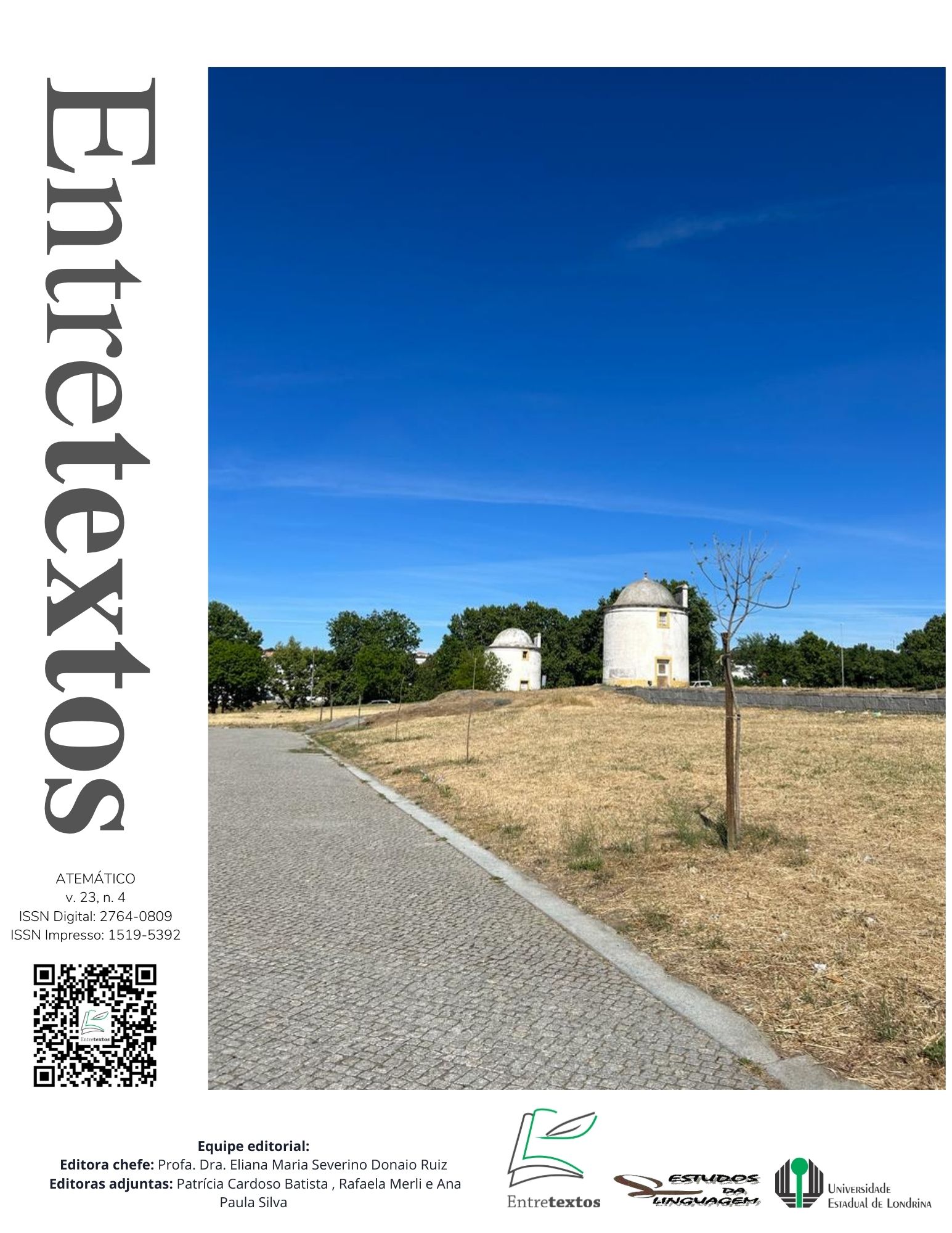Efeitos de sentidos do discurso de uma Big Tech sobre o PL das Fake News
DOI:
https://doi.org/10.5433/1519-5392.2023v23n4p388-408Palavras-chave:
Análise do Discurso, Mídia, PolíticaResumo
O algoritmo é a figura privilegiada atualmente para observarmos a determinação das práticas enunciativas midiáticas das Big Techs, o papel delas como sujeitos discursivo-ideológicos que trabalham simbolicamente para estabilizar uma série de evidências semânticas que naturaliza a formação social em que se encontram sujeitos. À luz da Análise de Discurso materialista, proposta por autores como Michel Pêcheux e Eni Orlandi, analisamos discursivamente distintas nomeações jornalístico-midiáticas para o Projeto de Lei 2630/2020 acerca da regulamentação das mídias digitais, levando-se em consideração a respectiva técnica informacional. A empresa Google (se) autorizou, em abril de 2023, enunciados assertivos acerca do projeto, midiatizado como “PL das Fake News”, em seu endereço principal: “o PL das Fake News pode aumentar a confusão sobre o que é verdade ou mentira no Brasil” e “o PL das Fake News pode piorar sua internet”. Tal nomeação deriva de um processo de transposição do jurídico para o jornalístico pela compreensão de efeitos de sustentação. Nosso objetivo é apontar a produção de efeitos de sentidos para o PL 2630/2020 em dizeres jornalísticos e interpretar quais dentre eles sustentam os dizeres de uma Big Tech como o Google.
Downloads
Referências
ADORNO, G.; SILVEIRA, J. Pós-verdade e fake news: equívocos do político na materialidade digital. In: GRIGOLETTO, E.; DE NARDI, F.S.; SOBRINHO, H.F.S. (org.). Sujeito, sentido, resistência: entre a arte e o digital. Campinas: Pontes Editores, 2019. p. 201- 218.
ALTHUSSER, L. Ideologia e Aparelhos Ideológicos de Estado (notas para uma investigação). In: Theodor Adorno...[et. al.]; ZIZEK, S (Org.). Uma mapa da ideologia. Trad. Vera Ribeiro. 1ª Ed. Rio de Janeiro, RJ: Contraponto, [1970] 1996, p. 105-142.
MOZOROV, E. Big tech: a ascenção dos dados e a morte da política. São Paulo, SP: Ubu Editora, 2018.
FUCHS, C; PÊCHEUX, M. A propósito da análise automática de discurso: atualização e perspectivas. Trad. Péricles Cunha. In: GADET, F.; HAK, T. (org.). Por uma análise automática do discurso. 3. ed. Campinas: Editora da Unicamp, [1975] 1997, p. 159-250.
GARBIN, S.R. Pré-construído. In: LEANDRO-FERREIRA, M. C (Org.). Glossário de termos do discurso: edição ampliada. 1 ed. Campinas, SP: Pontes Editores, 2020, p. 139-146.
ORLANDI, E. Análise de discurso: princípios e procedimentos. 13. ed. São Paulo, SP: Pontes, [1999] 2020.
ORLANDI, E. Interpretação: autoria, leitura e efeitos do trabalho simbólico. 5. ed. Campinas, SP: Pontes Editores, 2007.
PÊCHEUX, M. Análise automática do discurso (AAD-69). Trad. Eni Puccinelli Orlandi.In: GADET, F.; HAK, T. (org.). Por uma análise automática do discurso. 3.ed. Campinas: Editora da Unicamp, [1969] 1997, p. 59-158.
PÊCHEUX, M. Semântica e discurso: uma crítica à afirmação do óbvio. Trad. Eni Puccinelli Orlandi. 5. ed. Campinas, SP: Editora da Unicamp, [1975] 2014.
PÊCHEUX, M. O discurso: estrutura ou acontecimento. Trad. Eni Puccinelli Orlandi. 4. ed. Campinas, SP: Pontes, [1983] 2015.
RONCADA, B.; FERNANDES DE ALMEIDA JÚNIOR, E.; TITONELI SANTANA, C. Os diferentes nomes para a PEC 32/2022 na mídia. Rizoma, [S.l], v. 12, n. 1, p. 77-95, 31 jul. 2023. DOI: https://doi.org/10.17058/rzm.v12i1.18426. Disponível em: https://online.unisc.br/seer/index.php/rizoma/article/view/18426. Acesso em: 24 dez. 2023. DOI: https://doi.org/10.17058/rzm.v12i1.18426
Downloads
Publicado
Como Citar
Edição
Seção
Licença
Copyright (c) 2024 Eber Fernandes de Almeida Júnior, Bruno Roncada, Christiano Titoneli Santana

Este trabalho está licenciado sob uma licença Creative Commons Attribution 4.0 International License.
Entretextos adota a Licença Creative Commons Attribution 4.0 International, portanto, os direitos autorais relativos aos artigos publicados são do/s autor/es.
Sob essa licença é possível: Compartilhar - copiar e redistribuir o material em qualquer suporte ou formato. Adaptar - remixar, transformar, e criar a partir do material, atribuindo o devido crédito e prover um link para a licença e indicar se mudanças foram feitas.





















